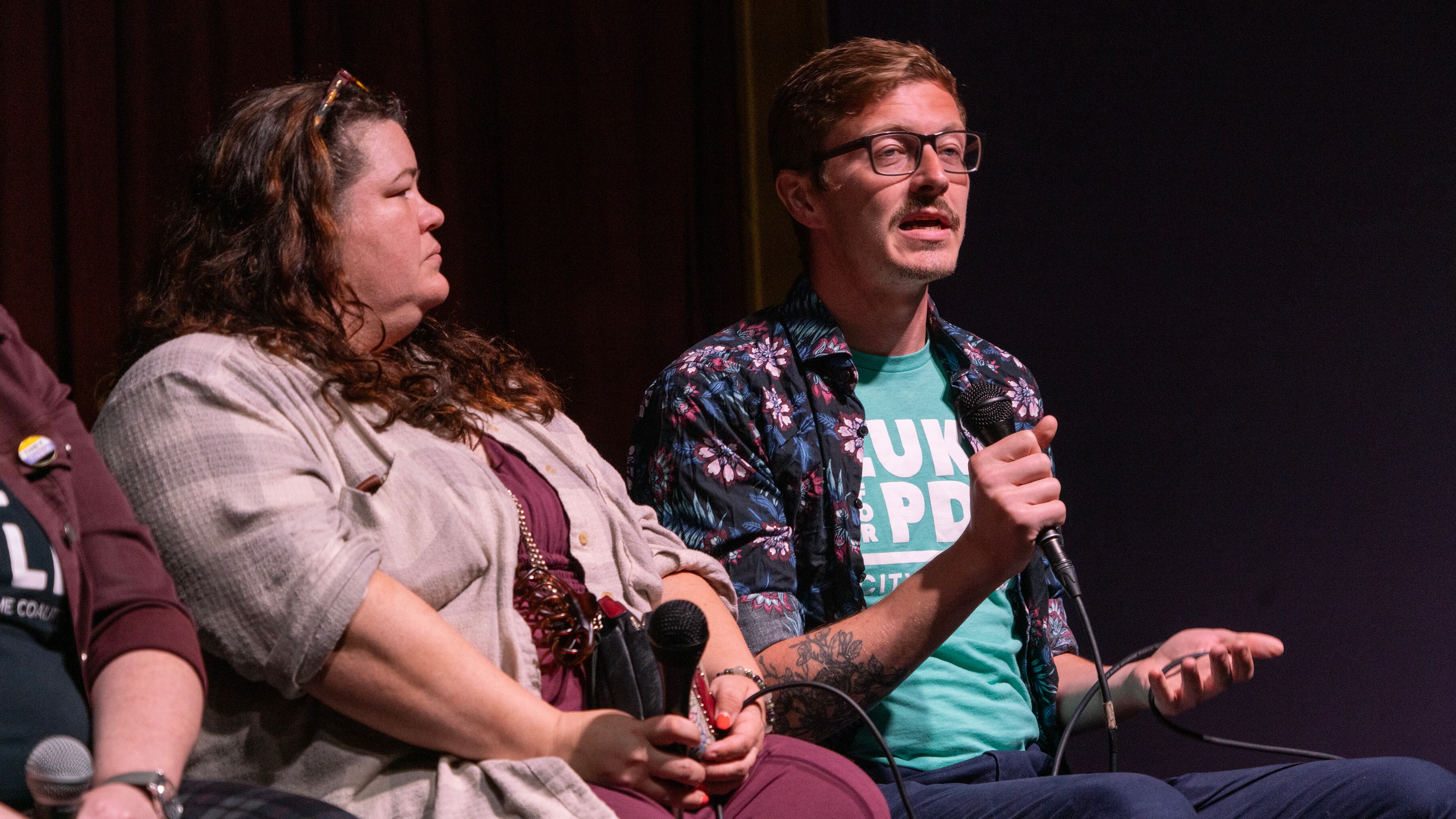New records show that the city of Portland’s Small Donor Elections program knew as early as Aug. 20 that candidates for City Council were agreeing to swap donations with one another, yet it was not until more than two weeks later that the program first addressed it.
Such donation swaps, made under the agreement of reciprocity, are likely a violation of Oregon Revised Statutes 260.665, according to three campaign finance attorneys. WW reported in a Sept. 4 story that at least four City Council candidates had agreed to trade donations with one another in order to qualify for matching taxpayer funds. The number of candidates that put in writing their willingness to engage in such swaps has since grown to 14, and the secretary of state is conducting an investigation.
New records obtained show that District 3 candidate Melodie Beirwagen flagged the trend in an Aug. 20 email to the Small Donor Elections program. That’s the city-funded program that provides $40,000 in matching taxpayer funds to City Council candidates who received at least 250 individual contributions by the Aug. 27 filing deadline.
“My reasoning is that acquiring donations has become the focus of my life, and as I am inundated by desperate pleas from other candidates, I’ve realized this frenzied grab for five-dollar bills is not why I’m running,” Beirwagen wrote on Aug. 20 to the program. “The final straw was a Portland candidate group email thread where candidates agreed to donate to one another in order to inflate each other’s number of donations. As a taxpayer, it didn’t feel right.”
Yet the city program, which at that point was fast-approaching the Aug. 27 filing deadline by which candidates could qualify for matching funds, did not act on Beirwagen’s intel. The program told Beirwagen that candidates would be asked to fill out a survey after the election and that she could note her concern there.
“As for a quid pro quo arrangement for contributions between candidates, the Small Donor Elections rules [are] silent on the subject,” program director Susan Mottet wrote to Beirwagen. “However, state law has a rule against ‘inducements’ that may be applicable. Certainly a copy of the email chain would be helpful to them, if someone were to file a complaint on the subject.”
Mottet defends her office’s decision not to act on the concern immediately.
“The program referred candidates who spoke to our office about this to the state, as only the state interprets, applies and enforces state law,” Mottet says, adding that “reports of contributions are due 30 days after received, so the program was waiting to receive those reports before it could act on them.”
Mottet says that when her office received candidates’ monthly reports in September, the program set aside all candidate-on-candidate donations so Mottet could differentiate between matchable and non-matchable donations. (Mottet had previously said that donations between candidates that were made under the condition of reciprocity are not eligible for matching taxpayer dollars. Mutual donations that were not made under the explicit condition of reciprocity are eligible for matching funds.) “The program will not have complete reports of candidate-to-candidate [donations] until October and will continue its work to determine which contributions are eligible to be matched and which are not,” Mottet adds.
Mottet last week said she was quarantining all candidate-to-candidate donations made after Aug. 7 in order to identify whether or not they’re matchable. That means a number of candidates flirting with the 250 threshold were in limbo for several weeks as Mottet sorted through the candidate donations. It was not until this week that several of those candidates, including Luke Zak and Harrison Kass in District 3, were officially approved for matching funds.
Zak says the delay put a pause on any further campaign spending for nearly a month while he awaited certification.
“The extreme delay in certification has greatly impacted my ability to campaign. Other candidates are lining up mailers, putting up billboards, investing in digital marketing, and hiring staff while I am stuck in limbo,” Zak, a first-time candidate running as a progressive, said last week. “This is limiting the capabilities of grassroots campaigns like mine that have put in tremendous effort to meet certification deadlines.”

